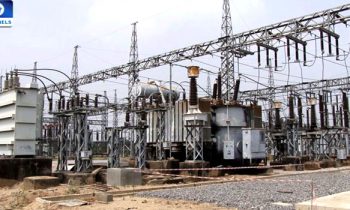
Nigerian rice farmer Adamu Garba squelched barefoot through his paddy fields, surveying damage from devastating floods that have destroyed farmland across the north of the country.
Parts of West and central Africa have been battered by floods ravaging farms like Garba’s rice plots, wiping out crops and risking worsening food insecurity in a region already struggling with economic fallout from the Ukraine war.
Just in Nigeria, constant heavy rains caused the worst flooding in a decade, killing more than 300 people since the start of the rainy season and displacing at least 100,000, according to emergency officials.
“It is devastating but there is nothing we can do, we just have to be strong,” Garba told AFP at his farm near the city of Kano, where he normally harvests 200 bags of rice.
“Now in the condition we find ourselves we are not sure we will harvest half a bag here.”
Nigeria’s National Emergency Management Agency (NEMA) spokesman Manzo Ezekiel said flooding has been unprecedented due to continuous rainfall with 29 of the country’s 36 states affected.
“Thousands of farmlands have also been destroyed. The figures will rise further because we are still experiencing torrential rains and flooding,” he said.
Flood waters were made worse partly by neighbouring Cameroon’s release of excess waters from a dam and by Nigeria releasing waters to ease pressure on its Kainji and Jebba dams, Ezekiel said.
However, an official with Eneo, operator of Cameroon’s Lagdo hydro-electricity plant, said excess waters released from the dam contributed only a small amount to flooding.
Parts of Nigeria, from northern farmlands to the coastal economic capital Lagos, are prone to flooding in the rainy season, though NEMA says this year is the worst since 2012, when 363 people died and more than 2.1 million were displaced.




